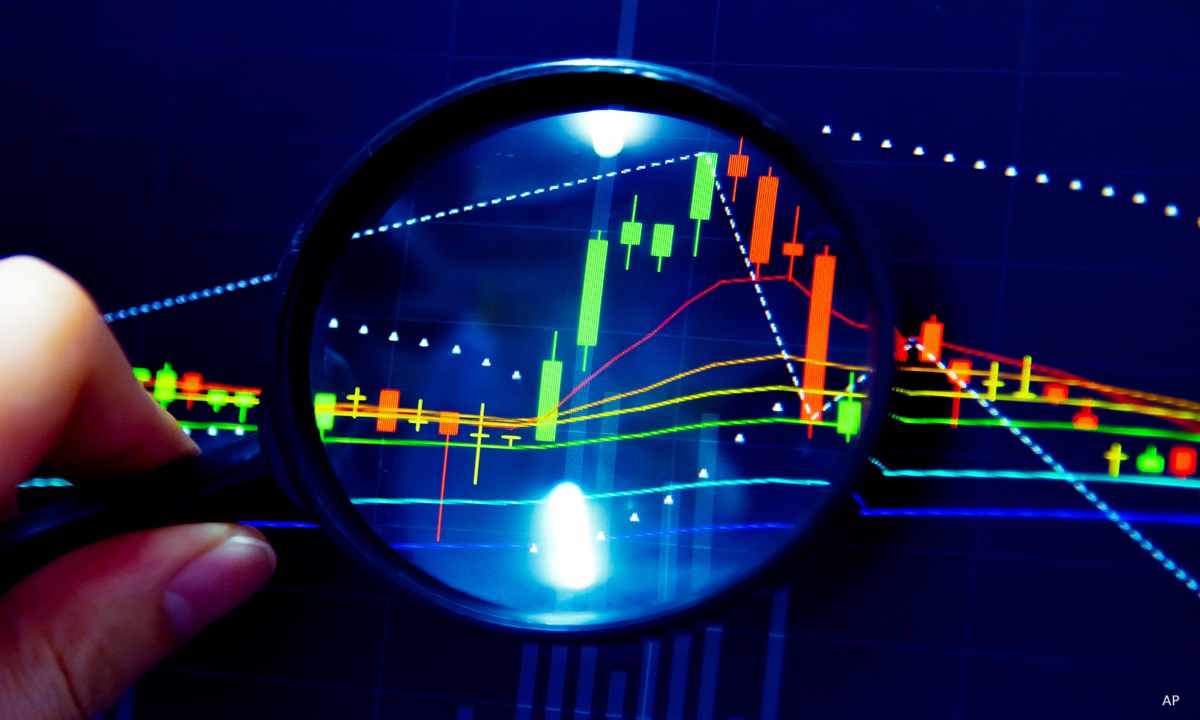The Trump effect, driven by the new U.S. president's campaign promises and subsequent pronouncements, has created winners and losers in the U.S. stock market. And as David Sykes, managing director and head of fundamental equities at Toronto-based TD Asset Management Inc., points out, it may pay off to raise exposure to some of the winners. But at the same time, it's prudent to leave some cash in reserve in the event that markets are thrown off by the politically inexperienced U.S. president stumbling on the world stage.
"If you look at equity markets before the election versus today, the S&P 500 Index is up roughly 6%. Some refer to that as the Trump effect. To me that's a relatively modest move," says Sykes. "But there has been a much more violent move at the sector level. We have had huge shifts away from the defensive sectors, such as consumer staples and telecom stocks. And there's been a huge rotation into financials and industrials. That's been the Trump effect."
President Donald Trump's pro-economic growth and pro-inflation policies are the key drivers, says Sykes. "The market has said, 'Wow, this is really good for industrial stocks, financials and technology.' In my opinion, the question is, is the Trump effect sustainable? It will depend on legislation. Election campaigns are all about the politics of the possible. Governing the U.S. is all about the politics of the impossible. We will see how the system of checks and balances work out."
A 20-year industry veteran, who earned a master's degree in politics, philosophy and economics from Oxford University in 1996 and a master's degree in international relations from the London School of Economics in 1997, Sykes argues that even though the Republicans control the Senate and House of Representatives it's another challenge altogether to pass one's legislative agenda. "Many other presidents have owned the Oval Office and had control of both houses of Congress, and have not been legislatively successful," says Sykes, noting for example that former president Bill Clinton also encountered roadblocks.
As for Trump's promise to reduce corporate taxes from 35% to 15%, Sykes doubts that such a move would ever happen. "I would suggest that there is no way he can get corporate taxes from 35% to 15%. He may get them to 25%, or 20% or 22%, or some number. That will be an example where some of the rhetoric does not meet the reality."
In addition, Trump has talked about U.S. companies being able to repatriate their foreign profits, using 10% as a starting point. "That is a big stimulative move," says Sykes. "But what happens if it's 15%? Or if Trump puts conditions on repatriating these profits? We shall see. The frustrating thing is we have had a lot of bold statements, but not a lot of detail. That's what we need to see: the details." Sykes added that Trump must soon unveil the size of the infrastructure spending program, the reduction in corporate tax rates and the scale of financial-industry deregulation.
Given all the uncertainty, Sykes does not spend much time predicting market behaviour over a one- to two-year time horizon. Rather, he focuses on finding 40 to 50 companies that generate income streams that grow steadily year in and year out. "I invest in companies that pay a dividend today and have a history of increasing that dividend year after year. I'm very much a bottom-up manager."
As a result, Sykes has not made wholesale changes to funds such as the 4-star rated TD North American Dividend. He has increased the U.S. equity exposure slightly to about 76%, from 73% a year ago. There is about 24% in Canadian stocks, slightly less than 25% a year ago.
Sykes has added to U.S. industrials and financials, and trimmed his exposure to some of the defensive stocks, such as consumer staples. For example, he raised the fund's holdings in investment banker ![]() Goldman Sachs Group (GS) as well as money-centre bank
Goldman Sachs Group (GS) as well as money-centre bank ![]() JP Morgan Chase & Co. (JPM) and
JP Morgan Chase & Co. (JPM) and ![]() Wells Fargo & Co. (WFC), a leading retail and commercial bank. "They have very large competitive advantages, good growth and very good track records of increasing dividends and increasing shareholder returns through share buybacks. But the real attraction is that with higher interest rates, these companies stand to make a lot more money in the future."
Wells Fargo & Co. (WFC), a leading retail and commercial bank. "They have very large competitive advantages, good growth and very good track records of increasing dividends and increasing shareholder returns through share buybacks. But the real attraction is that with higher interest rates, these companies stand to make a lot more money in the future."
On the industrials side, Sykes favours ![]() Lockheed Martin Corp. (LMT),
Lockheed Martin Corp. (LMT), ![]() Boeing Co. (BA) and
Boeing Co. (BA) and ![]() Honeywell International Inc. (HON). "They should benefit from increasing global growth," says Sykes. "If you look at Honeywell or Boeing, you would see 10-year, 15-year, and in some cases 30-year track records of increased dividends."
Honeywell International Inc. (HON). "They should benefit from increasing global growth," says Sykes. "If you look at Honeywell or Boeing, you would see 10-year, 15-year, and in some cases 30-year track records of increased dividends."
Sykes also helms the $3.2-billion TD Tactical Monthly, a tactical balanced fund with a 4-star Morningstar rating. He has reduced the fund's fixed-income allocation to 35%, from 45% before the election. Conversely, he has increased the equity allocation to 60%, from about 55%. "The reason that I have not taken it to 65% is that I have left myself 5% cash," he says." And that's because of the Trump effect."
Sykes raises concerns about Trump's lack of foreign-policy experience and the possibility of growing geopolitical risks in the coming years. "Hopefully, this won't come to bear. But if it did I suspect that equity markets would not do well under a conflict scenario in, say, the South China Sea, or a stand-off with the North Koreans," he says. "If this did happen, I'd be happy to use the cash to take advantage of cheaper prices. Markets never move up steadily in lock-step. Something will happen."
In the meantime, and noting that the business cycle is getting long in the tooth, Sykes is calling for equity-market returns of 4% to 6% in the next 12 to 18 months. "That may be too low, or too high. It depends on the size of the infrastructure spend, whether it's US$100 billion, or US$1 trillion, and whether the tax cut is 15% or 20%. Stock prices are driven by earnings and cash flow, which are driven in turn by economic policies, tax rates, spending and so on."






:quality(80)/cloudfront-us-east-1.images.arcpublishing.com/morningstar/54RIEB5NTVG73FNGCTH6TGQMWU.png)











